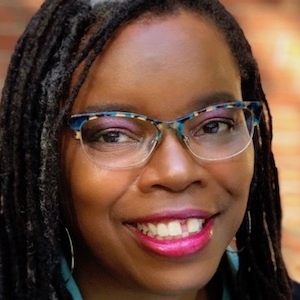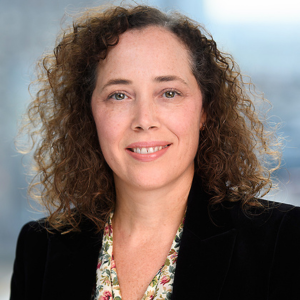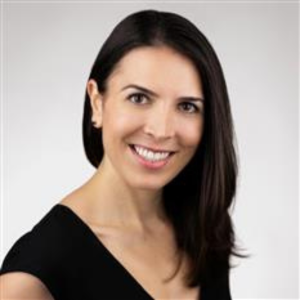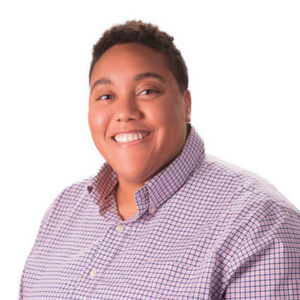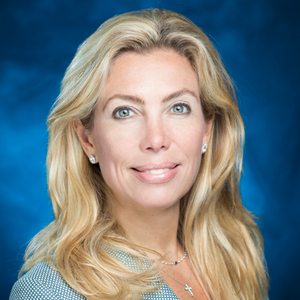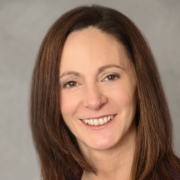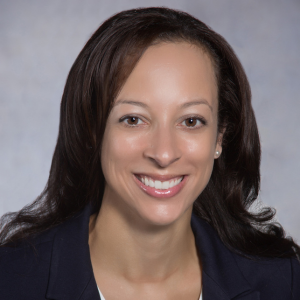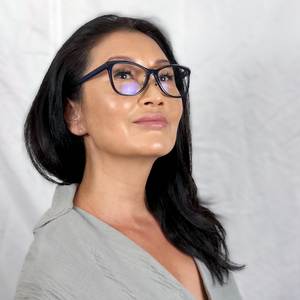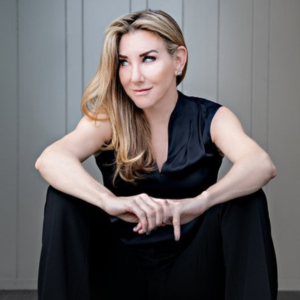Geneviève Piché: Head of Sustainable Finance and Advisory, Corporate & Investment Banking, Wells Fargo
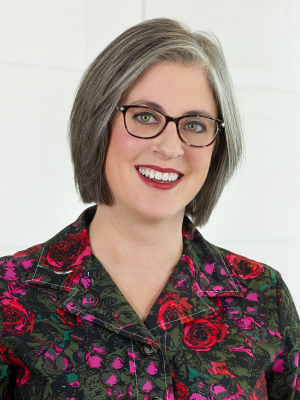 “Many people have idea ‘sparks,’ small or large, and too many people squash their sparks. But it’s with those sparks that you can improve organizations and improve yourself,” says Geneviève Piché. “It could be as small as a change in process or as massive as complete transformation. Being able to embrace the spark is the essence of organizational and personal development.”
“Many people have idea ‘sparks,’ small or large, and too many people squash their sparks. But it’s with those sparks that you can improve organizations and improve yourself,” says Geneviève Piché. “It could be as small as a change in process or as massive as complete transformation. Being able to embrace the spark is the essence of organizational and personal development.”
After studying economics and international studies at Macalester College, Piché joined Wells Fargo. That was 23 years ago. As a French Canadian who briefly lived in Australia growing up and chose a college with an international bend, Piché cultivated a wide world lens. At Wells Fargo, her international passion was flamed as she moved into emerging markets and finance. It’s become critical in her sustainability work, where ethics, global and regional dynamics are inextricably linked.
The diversity of opportunities and organizational culture at WF have supported her to stay inspired and grow. She recently returned from a two-week trip focused on understanding sustainability and energy transition in the Asia-Pacific region.
From “Idea Spark” To New Strategy And Role
“Embrace the sparks because they can catalyze organizational progress and develop careers,” iterates Piché. Back in May of 2020, she experienced an idea spark “that turned into a raging fire.”
Piché was leading the asset management coverage team and many of her clients were changing the way they allocated capital – moving towards ESG integration in the investment process and raising funds for specific thematic objectives – such as green infrastructure or circular economy.
“I could see there was a business need for a financial institution like ours to support those growing flows of capital, but simultaneously there were some interesting socio-economic developments happening,” recalls Piché.
Covid had revealed weaknesses in the supply chains and laid bare the unequal access to healthcare. Social justice themes had been brought to the forefront. Massive fires had been burning in Australia, consuming millions of acres of eucalyptus forest and wild lands, reminding Piché of a childhood experience at a farm where she was tending to the burnt paws of baby koalas who were fleeing or rescued from the fires.
“That was the first time I witnessed the interactions of climate change and biodiversity in my community, and it stuck with me. Now, the effects of climate change are spread way beyond Australia,” she says. “So it was a galvanizing moment for me that occurred at the same time as a call-to-action on the part of Wells Fargo leadership, when many leaders were saying we needed to do something differently and that they were all ears for ideas.”
So with the momentum of her spark and a receptive context, Piché developed a business strategy for Wells Fargo’s Corporate & Investment Banking division (CIB) around sustainable finance within ten days. Next was nurturing that spark.
“Having been at Wells Fargo for so long, I understood how things work intuitively. But for those who may be newer to an organization, knowing who understands the unwritten rules is an important part of networking,” she says. “Observe those people sitting at the right tables who communicate in a way that you like and get looped into email discussions. It’s important for career development to identify those strong and competent organizational players, even if you don’t exactly know the ropes.”
Along with knowing how things work, utilizing sponsors and mentors was also essential to fueling the spark. Piché ran the strategy across a sponsor who had organizational savvy but was not in her direct reporting line.
“First, it gave me the confidence that my idea was directionally correct because that person did their own research, too. It also allowed me to navigate our organizational structure to get the idea in the right place in the right way to build buy-in among leadership teams,” she notes.
After a couple of months and some refining, she received the call to leave her role as head of asset management and begin the new role she’d proposed.
Sustainability is a Win-Win
When it comes to a legacy of impact, and especially on Earth Day, Piché wants to convey the message that sustainability is a win-win for organizations, not a win-lose or compromise.
“Sustainability and climate efforts are about value creation. They are not check-the-box exercises. It’s about developing strategies that can drive value for companies while making the world a better place,” she says. “With a financial institution like Wells Fargo, we have a very big megaphone because we talk to so many different constituents and millions of customers, so I want people to be able to acknowledge and understand that developing strategies around environmental practices and social practices are extremely beneficial to companies in the long-term and in the short-term.”
She continues, “Once we are able to understand that, we will be more able to effectively unlock impact, drive large-scale change, support the industrial transformation that’s underway, and elevate and provide opportunities to those who have historically had fewer.”
Aligning Your Personality to the Role
Piché prefers to be a generalist who does many things at once – even picking two majors instead of one, and realizing that has helped.
“There are certain jobs that require you to be focused and narrow. Today, I know those jobs do not suit my personality. Roles that are broader and more entrepreneurial do,” she says. “One of the reasons I love my role now is that it’s rich in content, themes and opportunities and has many facets to the work. It allows me to juggle many things all at once and play to my strengths.”
Before she realized what job roles matched her, Piché would often supplement more narrowly-focused roles with side initiatives and projects or looking to travel to provide diversification. Perhaps only with the benefit of hindsight has she realized this, because when in a less-suited role you may normalize the feeling.
“But when you have the right job, you look forward to waking up in the morning. You’re excited about the people you’re working with and the work,” she says. “I often encourage people to think about their personalities and learning styles in finding the right role. Are you drawn to multiple threads of thoughts and projects? Do you like to travel far and wide but more shallow, or to go deep and seek real expertise in one particular area?”
Piché has further compatibility advice for people evaluating their first job or next opportunity: “It’s really important that you choose those opportunities based on the people that you will work with more so than the job itself,” she says. “Because I find the people that you are surrounded with are the defining characteristics of your experience. Developing a particular job skill is cumulative, but you want people who will support you on that journey and who inspire you.”
Piché also warns against burning those bridges. “I have found that my career path has wound in many different directions and people keep coming back into my life professionally. We say ‘don’t burn your bridges’ but really what that means is always be respectful and kind to the people who you work with. Be transparent and authentic and do your best,” she says. “When you do that, you manage those relationships and it can be that they keep on giving and building upon themselves as you progress in life.”
The Power of Storytelling
As she has become more senior, Piché’s love of writing, ability to communicate powerfully and storytelling have become greater strengths. It’s what helped to create her role. Another expression is the quarterly newsletter she sends to all Wells Fargo CIB employees to inspire and engage them in the sustainability initiative.
“Storytelling in a business context can be extremely compelling in driving leadership buy-in. It’s a great leadership skill when you can tell stories that are relatable and demonstrate expertise and thoughtfulness and authenticity,” she says. “On the flip side, great storytelling is also important in our customer relationships. What is the client looking for and what is the most compelling thing they are interested in? It’s really important to tell a story that is both quantitatively and qualitatively justified and compelling.”
Choosing to Plant Where You Can Thrive
“In the first ten years of my life, I had a very strong impression that organizations were meritocratic. Now, we understand there’s a tremendous amount of unconscious and institutional bias in all organizations, and it’s perhaps not so meritocratic beneath the surface,” she says. “There’s a lot that is challenging women’s careers and the careers of people of different backgrounds.”
At various times in her life, Piché has seen entrenched social networks that permeate professional life and make it challenging to navigate. She never doubted her competence, but it was evident some situations were more conducive to her success than others.
Those experiences underlined the importance of DEI, because breaking down institutional social barriers does not happen overnight, even in an organization where it is happening. These days, she is absolutely thriving in the broader context of sustainability where she interacts with all walks of life, geographies, races and ethnicities, while enjoying the work and feeling empowered.
Positive Impact in Every Sphere of Life
Piché wishes to impact positively in five areas: work, motherhood, partnership, self and friendship.
From weekend art challenges to bike rides to trips to school and bedtime stories, she loves creating special moments with her eight year old son. She intentionally nurtures her relationship with her husband through regular date nights. As a family, they enjoy collecting junior ranger badges through visits to U.S. national parks while building experience and knowledge around the natural and historical patrimony.
To care for herself, she does things she loves to do – whether playing music (the piano), cooking, reading or taking hikes. Also while she may have less to extend at times, she values being a thoughtful friend to the people in her life that need support.
Similarly, Piché leads her work teams authentically and transparently while demonstrating passion, enthusiasm and competence. And laughter.
“I think when you demonstrate those traits, it empowers teams and individuals to do the same. Then you have much higher performing teams and make a greater impact on people’s individual careers and sense of feeling inspired,” she says. “As leaders in the corporate world, if we can have positive impact on people’s well-being and joy and have a positive impact in the world, then I think we’ve accomplished something pretty awesome.”
By Aimee Hansen

